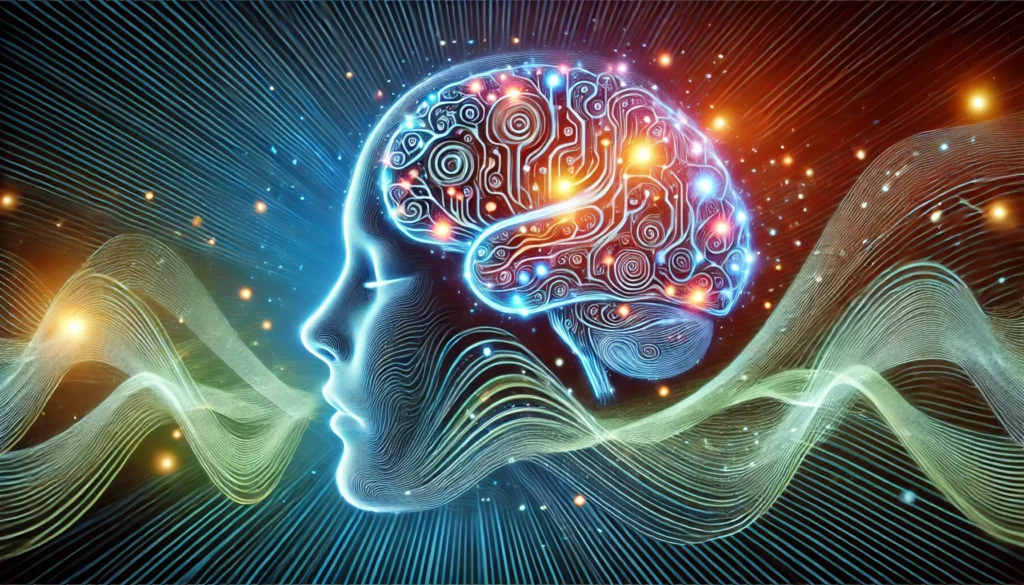The sensation of a fatigued body coupled with a racing mind often seems counterintuitive. After all, both mind and body are integral parts of the same organism. However, they can sometimes operate on different wavelengths, leading to a discord that leaves one feeling exhausted yet unable to sleep.
This dichotomy can be attributed to several factors, including stress, anxiety, poor sleep hygiene, and even diet. Understanding these elements is crucial for addressing the core issue and finding a pathway to restful sleep. When the body is physically tired but the mind is actively engaged, it creates a conflict that prevents the peaceful transition into sleep.
Moreover, this disconnect can be influenced by the environment, lifestyle choices, and even the thoughts we harbor throughout the day. The mental clutter accumulated during waking hours can manifest as an overactive mind when trying to sleep. Addressing these aspects is essential for achieving a state of relaxation conducive to sleep.
Stress and Anxiety: The Unseen Culprits
Stress and anxiety are significant contributors to the sensation of a tired body and an active mind. In today’s fast-paced world, stress is almost inescapable, whether from work pressures, personal responsibilities, or global events. This constant state of alertness triggers the body’s fight-or-flight response, releasing hormones like cortisol and adrenaline. These hormones can keep your mind engaged long after your body desires rest.
The presence of these stress hormones can disrupt the natural sleep cycle, making it difficult for the body to achieve deep, restorative sleep. Chronic stress can lead to a vicious cycle where poor sleep exacerbates stress and anxiety, further perpetuating sleep disturbances. Understanding the sources of stress and implementing stress-reduction strategies is vital for breaking this cycle.
Furthermore, individual sensitivity to stress varies, meaning some people may experience more pronounced effects on their sleep. Personalized approaches to stress management, such as cognitive-behavioral therapy or stress-reduction programs, can be beneficial in addressing these issues.
The Role of Sleep Hygiene
Another important aspect to consider is sleep hygiene, a term that encompasses the habits and practices conducive to sleeping well on a regular basis. Poor sleep hygiene, such as irregular sleep schedules, excessive screen time before bed, or an uncomfortable sleep environment, can significantly impact your ability to fall asleep despite physical tiredness.
Creating an optimal sleep environment is key, including factors like room temperature, lighting, and noise levels. A consistent bedtime routine can signal to your body that it’s time to wind down, aiding the transition to sleep. Reducing exposure to blue light from screens before bed is also crucial, as it can interfere with the production of melatonin, the hormone that regulates sleep.
Incorporating calming pre-sleep rituals, such as reading or taking a warm bath, can further enhance sleep quality. By fostering good sleep hygiene, you align your habits with your body’s natural rhythms, promoting restful sleep.
You May Also Like: The Connection Between Sleep and Cognition
Physiological Factors at Play
Circadian Rhythms: The Body’s Internal Clock
Our bodies are governed by circadian rhythms, biological processes that follow a roughly 24-hour cycle. These rhythms regulate sleep-wake cycles, hormone release, and other bodily functions. Disruptions to these rhythms, whether through shift work, travel across time zones, or inconsistent sleep patterns, can lead to a misalignment between the body’s need for rest and the mind’s activity.
Maintaining a consistent sleep schedule is vital for keeping circadian rhythms in sync. Exposure to natural light during the day and darkness at night helps regulate these rhythms, enhancing sleep quality. Jet lag or shift work can significantly disrupt circadian rhythms, requiring intentional strategies to readjust the body’s internal clock.
Moreover, understanding your chronotype, or natural sleep preference, can aid in aligning your lifestyle with your body’s rhythms. Night owls and early birds may need different approaches to optimize their sleep-wake cycles, underscoring the importance of personalized sleep strategies.
Nutritional Influences
Diet also plays a crucial role in how we sleep. Consuming stimulants like caffeine and sugar late in the day can keep the brain active even when the body feels tired. On the other hand, deficiencies in certain nutrients, such as magnesium and B vitamins, can affect neurotransmitter function and sleep quality.
A balanced diet rich in essential nutrients supports the production of sleep-regulating hormones. Foods high in tryptophan, like turkey and nuts, can promote the production of serotonin, a precursor to melatonin. Timing of meals is also significant; heavy meals close to bedtime can disrupt sleep, while lighter, nutrient-rich snacks may aid in relaxation.
Hydration is another critical aspect, as dehydration can lead to discomfort and hinder sleep quality. Being mindful of fluid intake, especially before bed, can prevent nocturnal awakenings. Overall, dietary adjustments can be powerful tools in achieving a harmonious balance between body and mind.
Hormonal Imbalances
Hormonal imbalances can also play a role in the disconnect between a tired body and an active mind. Conditions such as hyperthyroidism or adrenal fatigue can lead to symptoms of restlessness and insomnia. These imbalances may require medical intervention to restore balance and improve sleep quality.
The menstrual cycle and menopause can also impact sleep patterns in women, highlighting the importance of understanding hormonal fluctuations. Addressing these issues through lifestyle changes or medical advice can help in achieving better sleep.
Moreover, hormonal health is closely tied to overall well-being, emphasizing the need for a holistic approach. Regular medical check-ups and awareness of hormonal changes can support better sleep and health outcomes.

Practical Strategies for Balance
Mindfulness and Relaxation Techniques
To bridge the gap between a tired body and an active mind, incorporating mindfulness and relaxation techniques can be incredibly beneficial. Practices such as meditation, deep breathing exercises, and progressive muscle relaxation can help calm the mind and prepare it for sleep.
Meditation encourages the release of tension and the quieting of mental chatter, making it easier to transition into sleep. Guided imagery or visualization can also create a serene mental landscape conducive to rest. Deep breathing techniques, such as the 4-7-8 method, can activate the parasympathetic nervous system, promoting relaxation.
Progressive muscle relaxation involves systematically tensing and then relaxing muscle groups, reducing physical tension and calming the mind. These techniques, when practiced regularly, can significantly improve sleep quality by addressing the underlying mental and physical tensions.
Establishing a Consistent Sleep Routine
Creating a consistent sleep routine is another effective way to align your body’s need for rest with your mind’s activity. Aim to go to bed and wake up at the same time every day, even on weekends, to reinforce your body’s natural sleep-wake cycle.
Establishing a bedtime routine that signals to your body it’s time to wind down is crucial. This could include activities like reading, listening to calming music, or practicing gentle yoga. Consistency in bedtime rituals can help condition your body and mind to prepare for sleep.
Additionally, managing sleep environments by keeping bedrooms dark, quiet, and cool can enhance the sleep experience. Investing in comfortable bedding and minimizing disruptions can further support a consistent sleep routine.
Limiting Stimulants
Being mindful of your intake of caffeine and sugar, especially in the afternoon and evening, can also help. Opt for calming herbal teas like chamomile or valerian root that promote relaxation and support sleep.
Gradually reducing caffeine consumption and replacing it with non-caffeinated alternatives can ease the transition to better sleep. Similarly, cutting back on sugary snacks in the evening can prevent spikes in energy that disrupt sleep.
Identifying hidden sources of caffeine, such as certain medications or foods, is also important. Herbal teas and supplements that support relaxation can provide natural alternatives to stimulants, promoting a more restful night.
Cognitive Behavioral Therapy for Insomnia (CBT-I)
CBT-I is a structured program designed to help individuals overcome insomnia by changing thoughts and behaviors that interfere with sleep. This therapy focuses on identifying and altering negative thought patterns and establishing a healthier relationship with sleep.
CBT-I can be an effective alternative or complement to medication, providing long-term strategies for improving sleep. Techniques may include stimulus control therapy, sleep restriction, and cognitive restructuring to address anxiety and misconceptions about sleep.
Working with a trained therapist, individuals can develop personalized strategies to improve sleep quality and address the underlying causes of insomnia. This approach emphasizes the interconnectedness of thoughts, behaviors, and sleep, fostering a holistic path to restful nights.

Emerging Trends and Future Implications
The Role of Technology
As we look to the future, technology continues to play a pivotal role in understanding and addressing the disconnect between body and mind. Wearable devices and sleep tracking apps offer insights into sleep patterns and help identify areas for improvement. Meanwhile, advancements in neurofeedback and biohacking are opening new avenues for optimizing mental and physical health.
Sleep technology offers personalized data, helping individuals make informed decisions about their sleep habits. Wearable devices can track sleep stages, heart rate, and environmental factors, providing a comprehensive picture of sleep health.
Emerging technologies, such as AI-driven sleep coaching and smart bedding, offer promising solutions for enhancing sleep quality. These innovations provide tailored recommendations, adapting to individual needs and promoting a more personalized approach to sleep management.
Nootropics and Supplements
The burgeoning field of nootropics, or cognitive enhancers, offers potential solutions for individuals struggling with a racing mind. Supplements like L-theanine, found in green tea, promote relaxation without drowsiness and may help bridge the gap between a tired body and an overactive mind. However, it’s crucial to approach these supplements with caution and consult healthcare professionals before making them part of your routine.
The market for sleep-enhancing supplements is expanding, with options like melatonin and valerian root gaining popularity. Understanding the benefits and potential risks of these supplements is essential for making informed choices.
Research into the efficacy and safety of nootropics continues to evolve, offering new possibilities for sleep support. Consultation with healthcare providers can ensure that supplement use aligns with individual health needs and contributes to a balanced approach to sleep wellness.
The Intersection of Mental Health and Sleep
Emerging research highlights the intricate relationship between mental health and sleep, underscoring the importance of addressing both in tandem. Conditions such as depression and anxiety often coincide with sleep disturbances, necessitating integrated treatment approaches.
Understanding the bidirectional nature of this relationship can inform more effective interventions. Addressing mental health concerns can lead to improvements in sleep quality, while better sleep can enhance mental well-being.
Collaborative efforts between mental health professionals and sleep specialists can provide comprehensive care, supporting both aspects of health. As awareness of this connection grows, opportunities for innovative treatments and holistic approaches continue to expand.

Conclusion
In a world where stress and stimulation are constant, the challenge of a tired body and a racing mind is a complex yet common issue. By understanding the underlying causes and implementing practical strategies, you can find a balance that promotes restful sleep and overall well-being. Whether through mindfulness practices, nutritional adjustments, or leveraging technology, there are myriad ways to harmonize the body and mind, paving the way for rejuvenated mornings and productive days ahead.
As we continue to explore the intricate relationship between body and mind, ongoing research and technological advancements hold promise for deeper insights and innovative solutions. In the quest for optimal health and wellness, the journey towards a peaceful night’s sleep is a crucial step forward.
The future of sleep health lies in a multidisciplinary approach, incorporating insights from neuroscience, psychology, and technology. As we embrace this holistic perspective, we move closer to unlocking the secrets of restful sleep and enhanced quality of life. With dedication and awareness, achieving a peaceful night’s sleep becomes an attainable goal, enriching both mental and physical health.
Further Reading:
Cleveland Clinic: Lethargy
Verywell Mind: ‘I Want to Sleep But My Body Won’t Let Me’: Why Does This Happen?
Sleep Foundation: Does Daytime Tiredness Mean You Need More Sleep?
Important Note: The information contained in this article is for general informational purposes only, and should not be construed as health or medical advice, nor is it intended to diagnose, prevent, treat, or cure any disease or health condition. Before embarking on any diet, fitness regimen, or program of nutritional supplementation, it is advisable to consult your healthcare professional in order to determine its safety and probable efficacy in terms of your individual state of health.
Regarding Nutritional Supplements Or Other Non-Prescription Health Products: If any nutritional supplements or other non-prescription health products are mentioned in the foregoing article, any claims or statements made about them have not been evaluated by the U.S. Food and Drug Administration, and such nutritional supplements or other health products are not intended to diagnose, treat, cure, or prevent any disease.


